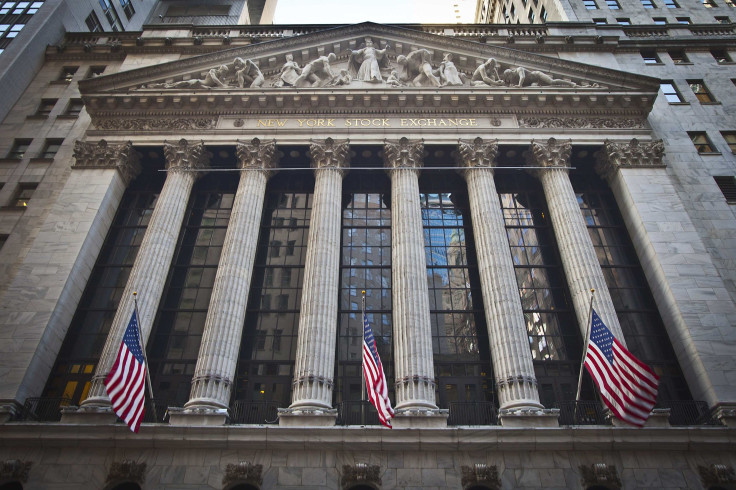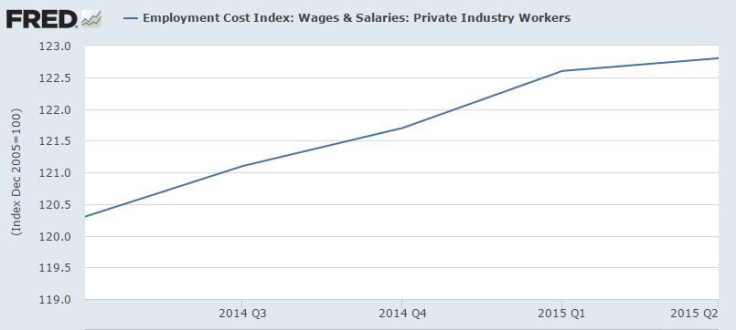Dow Jones Industrial Average Drops As Exxon Mobil Corporation (XOM) And Chevron Corporation (CVX) Sink 4%

U.S. stocks traded mixed Friday amid a series of weaker-than-expected energy earnings from the world's No.1 and No. 2 oil and gas companies. Although only three of the 10 Standard & Poor's 500 sectors traded lower, a 2 percent decline in energy weighed on the overall index as it struggled to hold onto gains from the utilities sector.
The Dow Jones Industrial Average (INDEXDJX:.DJI) declined 18.30 points, or 0.10 percent, to 17,727.68. The S&P 500 index (INDEXSP:.INX) edged up 2.72 points, or 0.13 percent, to 2,111.46. However, the Nasdaq composite (INDEXNASDAQ:.IXIC) edged up 8.98 points, or 0.18 percent, to 5,137.18.
Exxon Mobil Corporation (NYSE:XOM), the world's largest publicly traded oil and gas company, and Chevron Corporation (NYSE:CVX), the second-largest, led the Dow lower Friday, falling 4.6 percent and 4.4 percent, respectively. Both companies saw profits decline sharply in the April-June quarter due to falling oil prices. Crude prices have lost nearly half their value in the last year.
Chevron posted its worst quarterly profit performance in nearly 13 years. Exxon's earnings dropped 52 percent from a year ago -- to a level the company hasn't seen since 2009.
Shares of Chevron and Exxon have lost 28 percent and 16 percent, repectively, over the last 12 months.
Data released Friday revealed U.S. employment costs recorded their smallest increase in more than 30 years amid tepid gains in the private sector, which could give the Federal Reserve a reason to delay an interest rate hike this year as the central bank debates whether the economy is strong enough to move away from crisis-level rates.
On the heels of Thursday’s soft gross domestic product report, economists say the soft employment costs are an argument for no increase in the federal funds rate when the Federal Open Market Committee (FOMC) meets in September. Fed Chairwoman Janet Yellen “has said a rate hike is likely this year, but she, and the rest of the FOMC, would like to see stronger wage growth, which might be a reason to wait until December,” Stuart Hoffman, chief economist at PNC, said in a research note Friday.
The employment cost index, a quarterly report from the U.S. Department of Labor that measures the growth of employee compensation, including wages and benefits, rose 0.2 percent in the second quarter, missing expectations for a 0.6 percent increase, the Labor Department said Friday. That was the smallest gain since the Labor Department began tracking the index in 1982. The index had previously jumped 0.7 percent in the first quarter.
Following the report, the yield 10-year treasuries edged lower, trading at 2.20 percent as investor expectations for a rate hike as early as September declined. The decline in yields helped push interest rate sensitive sectors higher, as utilities and telecommunication rose 1 percent and 0.22 percent, respectively.

Separately, U.S. consumer sentiment rose less slightly than expected in July as the index came in at 93.1, down from 96.1 in June, the University of Michigan’s final consumer sentiment report for July showed.
A disappointing pace of economic growth was the main reason for the small decline in consumer confidence. “Although 1-in-10 consumers, when asked to identify any recent economic developments they had heard, referred negatively to Greece, the Chinese economy, and the Trans-Pacific Partnership on trade, it had virtually no impact on the Sentiment Index,” Richard Curtin, chief economist at Surveys of Consumers, said in the report.
Chinese stocks posted their worst monthly loss in nearly six years after the Shanghai Composite index tumbled 13.4 percent for the month as investor confidence in a government-led recovery wavered. This marks the index's worst monthly performance since August 2009.
Russia's central bank cut its key interest rate again Friday, slashing it by 50 basis points to 11 percent. The move comes amid signs of renewed weakness in the ruble. The central bank is trying to tame the country's high inflation without pushing the economy into a deeper recession.
© Copyright IBTimes 2024. All rights reserved.





















